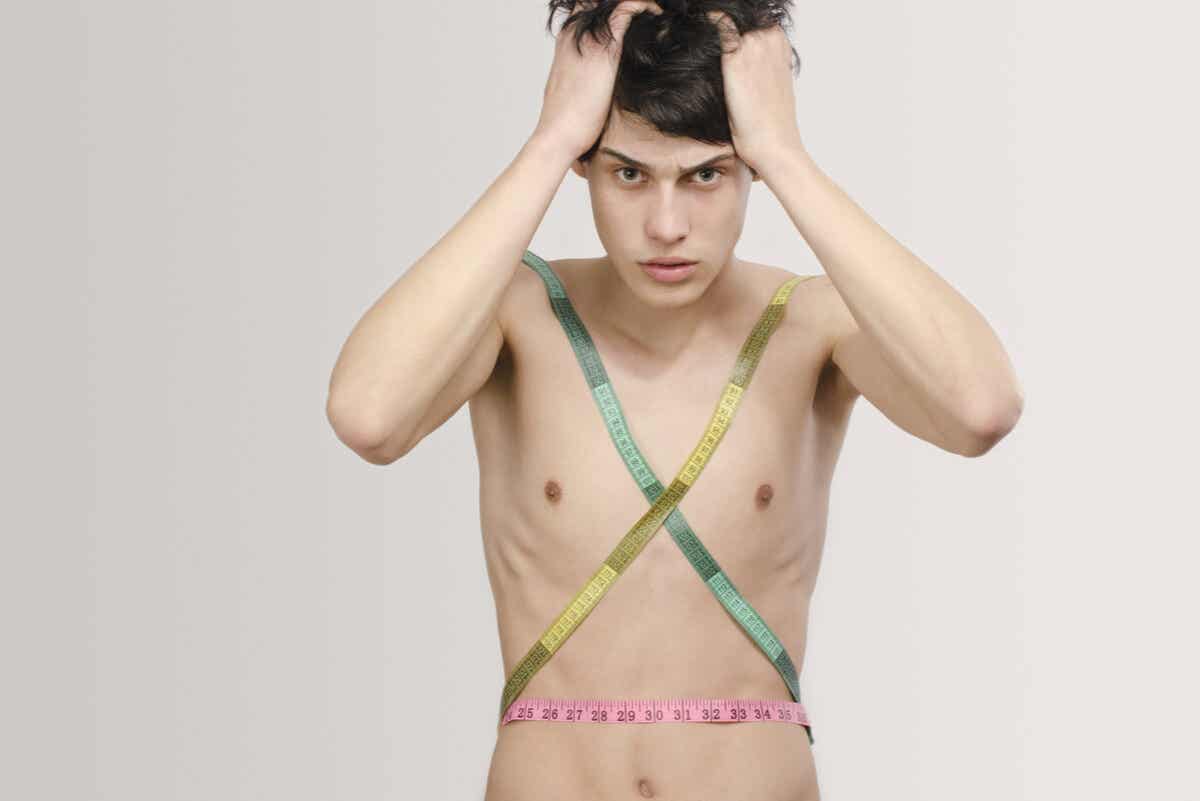Negative Body Image and Its Effects on Self-Esteem

Do you avoid looking in the mirror so you don’t have to stare at your reflection? Do you feel uncomfortable in activities that involve showing your body in public, such as swimming at the beach or the pool? Are your sexual relationships unsatisfying because you’re not happy with your physique? Negative body image can generate a lot of emotional discomfort.
If this happens, it can affect your self-esteem and, therefore, your day-to-day life; for this reason, it’s important to know what body image means and how you can modify it.
Body image doesn’t refer to physical appearance but to the way each individual perceives their body. Many people in their later years, when looking at photographs of their youth, wonder how it’s possible that they thought about their body in a negative way when they were in good physical shape: subjectivity plays a really important role.
So what is negative body image?

Body image is the mental representation a person has of their body. It’s the internal picture they have of themselves on a physical level and how they think others perceive them. It is, first and foremost, a subjective representation that includes the thoughts, attitudes and emotions that the individual has about their body.
When this body image is realistic and balanced, and allows the person to feel comfortable in their body, it can be said to be positive. On the other hand, a negative body image is one that’s poorly adjusted to reality and leads the person to feel uncomfortable, anxious and ashamed of their physique.
Consequences of a negative body image for self-esteem
Self-esteem is a person’s subjective appraisal of their worth. It’s the value you place on yourself based on your perceived characteristics, and the way you feel, behave and relate to others depends on it.
For the same reason, good self-esteem is fundamental if you want to enjoy good social relationships and personal well-being.
Self-esteem is closely related to body image. Thus, a person who perceives their body in a positive way will have higher self-esteem than someone who has a negative perception of their image.
It’s hard to deny that physical image is becoming more and more important in society and that people judge both themselves and others based on it. People with a negative body image perceive themselves as insufficient or inadequate in relation to socially accepted standards.
Because of all of this, their self-esteem decreases. This can lead to anxiety, depression, eating disorders, and a series of other complications.
Keep reading: How to Regain Your Self-esteem After a Break-up
Symptoms of negative body image

It’s usually easy to identify if you have a negative body image because you’ll notice the unpleasant emotions you feel concerning your body.
However, social pressure makes it increasingly common for people to feel dissatisfied with some part of their physique. These attitudes have become normalized. So, if you want to know if you’re suffering from negative body image, you can think about the following indicators:
- You feel uncomfortable and embarrassed about your body and your physical image.
- You focus excessively on certain defects or parts of your anatomy and thus magnify their importance to you.
- Maybe you engage in compulsive behaviors such as repeatedly looking at your flaws, pinching yourself, or weighing yourself.
- You avoid looking at yourself in the mirror as much as possible because of the emotional discomfort it generates.
- Your daily life is limited by the discomfort you feel about your physique. This means you avoid participating in activities that involve showing your body (such as going to the beach or the swimming pool). It also means you feel limited when it comes to interacting with other people.
What treatment options are available?
Cognitive-behavioral therapy has been shown to be the most effective method in treating negative body image. It can help you identify and modify dysfunctional thoughts and the critical internal dialogue that sustains the problem.
It may also be necessary to learn relaxation techniques to reduce the level of anxiety or to work on past experiences or traumas that may be contributing to your poor self-image and low self-esteem. But, above all, you need to develop tools to cope with social and media pressure and learn to accept your body.
Find out more: How to Be Happy with Yourself
A psychologist can help you improve your self-esteem
A negative body image can limit your ability to relate to others, influence your performance at work, and affect romantic relationships. In addition, it can cause high levels of anxiety, depression, and low self-esteem. So, if you identify with what you’ve read here, don’t hesitate to consult a professional.
Remember that perception is highly subjective. Accepting your body is often more related to internal psychological resources than to your actual appearance. This means you should try to develop psychological tools that allow you to cope with social pressure.
All cited sources were thoroughly reviewed by our team to ensure their quality, reliability, currency, and validity. The bibliography of this article was considered reliable and of academic or scientific accuracy.
- Alleva, J. M., Sheeran, P., Webb, T. L., Martijn, C., & Miles, E. (2015). A meta-analytic review of stand-alone interventions to improve body image. PLoS One, 10(9), e0139177.
- Slade, P. D. (1994). What is body image? Behaviour Research and Therapy, 32(5), 497–502. https://doi.org/10.1016/0005-7967(94)90136-8
- Tiggemann, M. (2011). Sociocultural perspectives on human appearance and body image. In T. F. Cash & L. Smolak (Eds.), Body image: A handbook of science, practice, and prevention (p. 12–19). The Guilford Press.
This text is provided for informational purposes only and does not replace consultation with a professional. If in doubt, consult your specialist.









